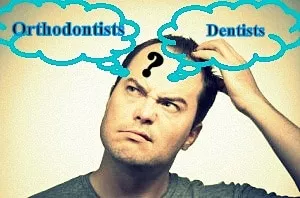February 6, 2014
Access to Truth
[caption id="attachment_1098" align="alignright" width="300"] wickenden via Compfight cc[/caption]
An orthodontist's job may be something that's very different than what you may think. Many think that an orthodontist is simply an extension of the dentist but in all truth it's very different from the latter. Orthodontists need to keep doing extensive research to offer their patients better treatment options as well as make sure that they have the latest qualifications from various manufacturers and orthodontic appliance providers. Providing the highest quality technology and treatment options can allow them to cut down treatment's duration as well as offer up treatment for a variety of different conditions that may affect their patients. New treatments that are available such as Invisalign and Suresmile are extremely revolutionary and are cutting down treatment times and the ease of treatment exponentially. Want to know how Invisalign works? Watch the video!
wickenden via Compfight cc[/caption]
An orthodontist's job may be something that's very different than what you may think. Many think that an orthodontist is simply an extension of the dentist but in all truth it's very different from the latter. Orthodontists need to keep doing extensive research to offer their patients better treatment options as well as make sure that they have the latest qualifications from various manufacturers and orthodontic appliance providers. Providing the highest quality technology and treatment options can allow them to cut down treatment's duration as well as offer up treatment for a variety of different conditions that may affect their patients. New treatments that are available such as Invisalign and Suresmile are extremely revolutionary and are cutting down treatment times and the ease of treatment exponentially. Want to know how Invisalign works? Watch the video!
How to find out if an orthodontic specialist is a qualified orthodontist or not:
Before you receive any type of orthodontic care there are some great questions that you can ask your orthodontist to make sure that he or she has the required qualifications: - Which state did you receive your accredited orthodontic license and where are you currently licensed as an orthodontist? - Did you attend an accredited full-time residency in and orthodontic program? If so which program? - In which position did you graduate in dental school? Were you near the top of your class? - Are you a qualified dental specialist, or a full-fledged orthodontist?How to tell the difference between dental specialists and orthodontists:
When it comes to dental specialists any number of names can be thrown around such as; pediatric dentists, oral surgeons, endodontists, prosthodontists and more. These types of dental specialists have merely specialized in a specific piece of dentistry and this does not make them qualified orthodontists. Orthodontists are perhaps one of the most rare specialties for dentists to pursue after they complete their qualifications at a school of dentistry. Just 6/100 dentists qualified for an orthodontic program out of a dental school. Orthodontists then need to complete a grueling two-year residency program and then qualified to get a certificate in orthodontics after their residency is completed. Only after they have completed this extra education and received their certification, are these individuals suited to provide treatment in the field of orthodontics. If you are interested in getting into contact with a real, qualified orthodontist in your area contact King Orthodontics today for a free consultation.King Orthodontics, 400 East Dayton, Yellow Springs Rd. Fairborn, OH 45324
Phone: (937) 878-1561 Fax: (937) 433-9530
Orthodontist - A Better Option for your Dental Treatment
Contact Us
Welcome to King Orthodontics!
How can we help?
I'm considering treatment
I'm a patient and need assistance
Great! We offer free Virtual or In-Office Consultations. Get started by clicking below:
I'd like to set up a virtual consultation
I'd like to set up an in-person consultation
Give us a call today (937) 433-0830 King Orthodontics
